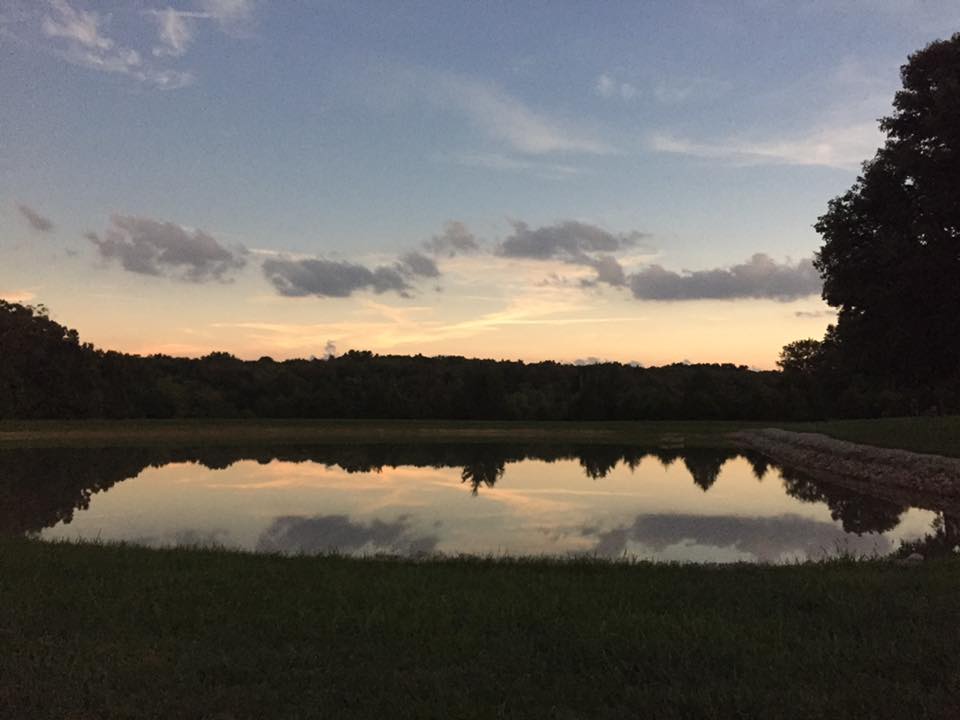by Leslie Scoopmire
Along with millions of other people, my husband and son and I were excited to learn that we were living near the center of the path of the solar eclipse this week. I remembered seeing just the partial eclipse in 1979 when I was a kid in Tulsa, and it was an amazing experience. Wanting to completely experience the full effect this time, we decided to travel a few miles from our home to a retreat center fully in the path of totality that also had a sweeping vista that would allow us to see much of the horizon around us.
For more than an hour, using glasses and cameras with eclipse filters, we watched the shadow of the moon interpose itself over the sun. With the help of special apps, we were able to input our location and be told exactly when it was safe to look at the eclipse directly at the time of full coverage.
As totality approached, the shadows on the ground grew sharper. Although we were surrounded by all kinds of wildlife, a profound stillness and silence began as the shadow of the moon slipped completely over the face of the sun. For many seconds there was silence—and the light turned a bluish-purple the likes of which I have never seen before. Stars and planets appeared overhead.
From a nearby town, we could then hear people shouting in amazement. Some people nearby set off a burst of fireworks. But mostly, for 2 minutes and 40 seconds, it was like a curtain was drawn back from across the heavens, and the stars and planets seemed to vibrate to a lilting praise song to the Almighty.
I had been led to expect darkness, but there was actually a living presence of light that dazzled the eye, especially after all those minutes spent wearing eclipse glasses. The temperature dropped significantly. The wind grew still so that even the trees seemed to hold their collective breath.
It’s funny. In the writings such as the books of Joel 3, Isaiah 13, or Job 9, the darkness similar to solar eclipses was represented as signs of God’s wrath, invoking feelings of terror and dread. But those were not the scriptural images that came to mind.
Instead, I was reminded of the passages in Psalm 89 and in Deuteronomy 10:14-19 that reminds us that “heaven and all the heavens of heaven,” and the Earth and all that is in it belong to God. Not only are we are blessed to be given this beautiful, fragile speck of a planet that carries us through the vast expanse that lay before me in the middle of the day, we are also charged and trusted to care for creation, including each other, in humility and service, as the passage in Deuteronomy affirms in covenantal language.
I recalled Psalm 8, Psalm 102, and Psalm 19, which portray the heavens as the awe-inspiring work of the fingers of God, plaiting together the very fabric of heaven, fashioning the celestial bodies and setting them on their courses as a master craftsman, felt with the psalmist the deep humility invoked by the wonders that spun before us overhead. This last text especially came to me as I reeled in wonder, and I remembered Haydn’s use of it in his oratorio on the Creation:
The heavens are telling the glory of God,
The wonder of His work displays the firmament.
In all the lands resounds the word.
Never perceived, ever understood,
ever, ever, ever understood.
The heavens are telling the glory of God,
The wonder of His work,
The wonder of His work displays the firmament.
All too soon, it was over, and the blue opaque curtain fell back across the sky as the sun began to emerge from behind the shadow of the moon. The birds and insects resumed their songs. The surrounding countryside seemed to shake itself from its collective-breath-holding, exhale, and resume.
The people in the next town gave another great shout, and then, being true Midwesterners, probably scrambled into their cars to take part in creating a 50-mile-long traffic jam on all the major highways leading away from the path of the eclipse. For another hour, the eclipse subsided overhead. And yet, the resounding echo of the music of the heavens lingered in my ear as it never had to me before, a low susurration resident in the beautiful stillness of the amethyst light that lay over us like a mantle. Yet we are reminded, even now, that the heavens ARE telling the glory of God, and calling on us to do the same.
Leslie Scoopmire is a retired teacher and a priest in the Diocese of Missouri, and a graduate from Eden Theological Seminary in Webster Groves, MO. She is Interim Youth Missoner for the Diocese of Missouri, and tweets daily prayers and news of note @Scoopexplainsit. Her blog is Abiding in Hope.
Image: by Leslie Scoopmire– moment of totality

